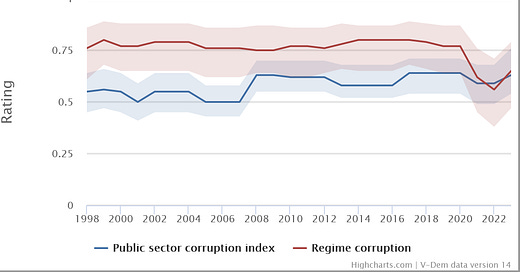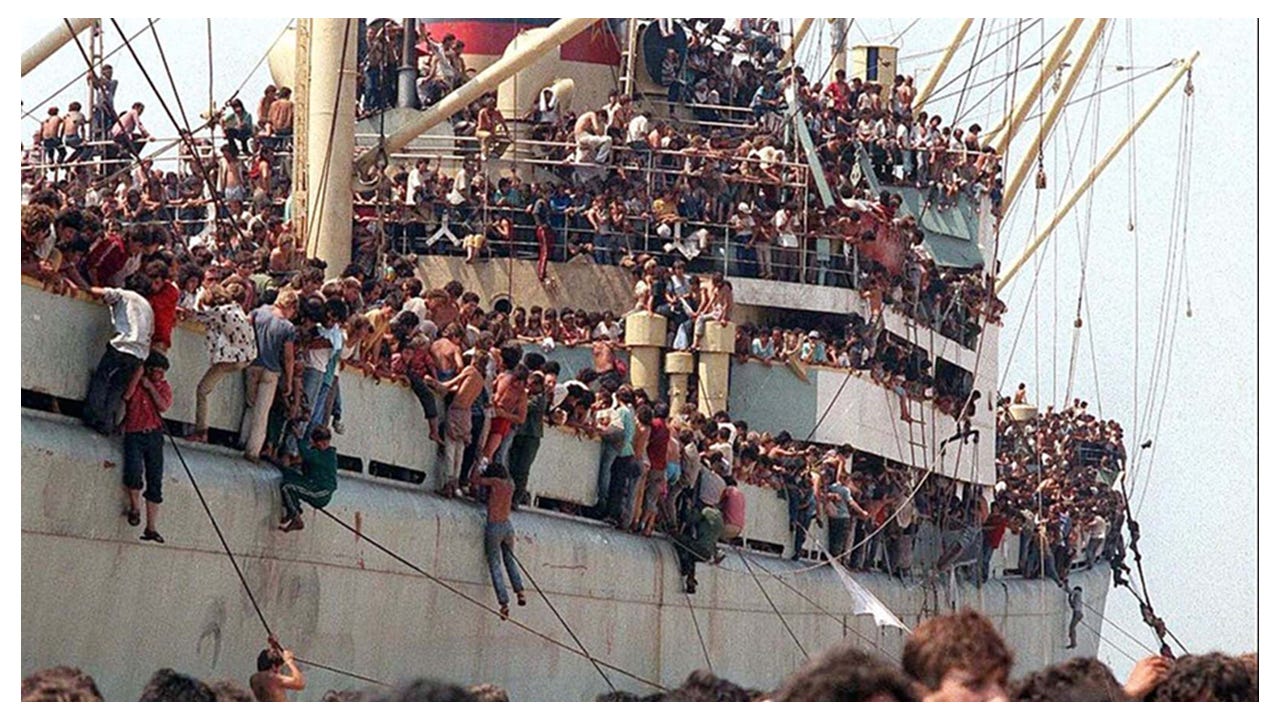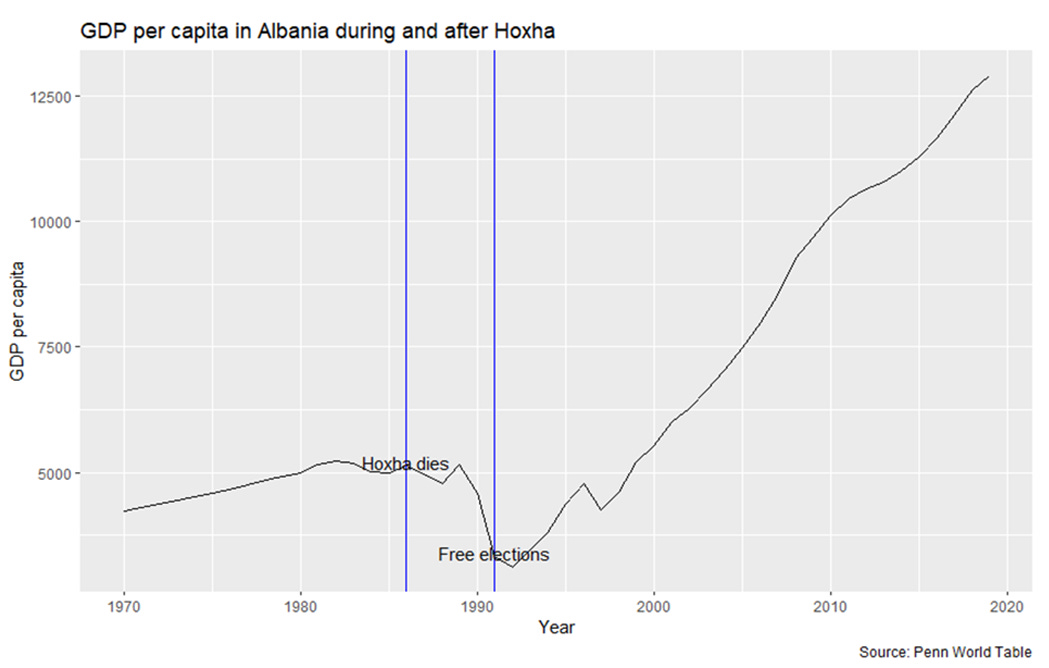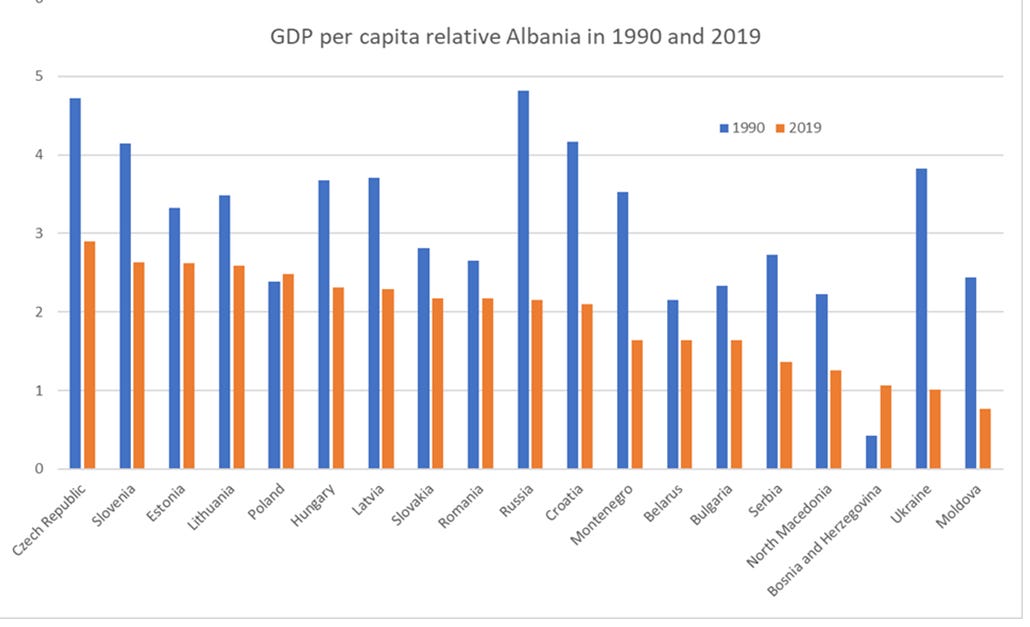Update: Three days ago, EU and Albania held the second accession conference in Luxembourg. Negotiations were on “Fundamentals” which include chapters on Judiciary and Fundemental rights Judiciary and fundamental rights, and Justice, freedom and security. This does not mean that Albaina will be members next year. The government has still a lot of work according to the EU common position on Chapter 1.
The Albanian government still needs to clamp down on corruption:
The EU notes that Albania’s legislative and institutional framework on anti-corruption is partially aligned with the EU acquis. The EU notes positively some final convictions on corruption charges against high-ranking officials. The EU underlines nevertheless that corruption is prevalent in most areas of public and business life, including in all branches of central and local government and institutions and remains an area of serious concern. The EU further notes that anti-corruption measures have had overall a limited impact so far particularly in the sectors most at risk of corruption.
Paradoxically, the negotiations are carried out now during the Hungarian chairmanship….Anyway, as Varieties of Democracy shows, the fight against corruption seems (seemed) to be harder fought in the highest level of the administration.
Corruption in Albania.
Source: Varieties of Democracy. Note. The regime corruption indicator aims to gauge the extent to which political actors use political office for private or political gain. The public sector corruption indicator aims to gauge the extent to which public sector employees grant favors in exchange for bribes, kickbacks, or other material inducements, and how often do they steal, embezzle, or misappropriate public funds or other state resources for personal or family use? The indices range from 0 to 1 where. The higher the index, the stronger the corruption.
According to Varieties of Democracy, the situation has improved regarding civil liberties, and freedom of expression while there are question marks concerning media freedom and the judiciary’s independence. I invite you to have a look yourself by using Varieties of Democracy’s graphing tools.
Not much happends in three years, and countries can be in different phases of the business cycle making comparisons difficult. Anyway, I updated the figure showing other former communist countries’ GDPs per capita relative Albania. It seems the gaps have decreased somewhat which is what one should expect as Albania started to grow from a very low level of GDP per capita.
GDP per capita relative Albania in 2019 and 2022.
Source: World Bank.
Anyway, in case you have not fallen asleep by now, here’s the previous post which I wrote three years ago.
Spoiler: The Stalinist Hoxha made Albania the poorest country in Europe. To paraphrase Marx and Engels, by overthrowing the communist regime, the Albanian proletarians had nothing to lose but their chains. Or perhaps a shotgun and a bunker, which were the average endowments of an Albanian household. When the communist era was over, the Albanian economy began to grow. And its growth rate has been higher than most other European countries.
The economy has improved more than the political situation. Even though free elections were held in 1991, the political situation in the country has been tumultuous. Manipulations of elections, repressions of political opponents and riots have from time to time plagued the country since the end of communism.
Assessments of how the political situation develops, vary. Albania is slowly moving, and sometimes backwards, from an authoritarian past towards a democracy with guaranteed civil rights.
No people in Europe suffered so much from communism, in well-being, as the Albanians. When communism finally collapsed in Eastern Europe, also Albanians reacted. They reacted both by protesting and fleeing. Tens of thousands of Albanians crowded ships destined for Italy or other free countries.
Albanian Refugees fleeing post-communism food shortages and poverty on the cargo ship Vlora in Bari’s port, Italy on 8 August 1991.
Source: openpics.aerobatic.io
Many Albanians stayed abroad. Still today, a third of Albanians live abroad making remittances important for the country. Remittances today account for almost 10 percent of Albanian GDP. In the beginning of the 1990´s they accounted for almost a third of GDP and on average some 15 percent between 2000 and 2010.
Freeing the economy and opening the country to trade and foreign direct investments, gave an impetus to the economy. When central planning was abolished, and production and resources were allocated to free prices, output and productivity increased. Foreign direct investments provided necessary capital for the country where insufficient domestic savings earlier held down necessary investments. Albania started to grow and has continued to do so with the exception for a bump in the curve in 1997, c.f. Figure 1.
Figure 1. GDP per capita in Albania 1970-2019.
Source: Penn Word Table. https://www.rug.nl/ggdc/productivity/pwt/?lang=en
Much of the growth is of course explained by the shockingly bad conditions following the brutal communist regime. This is a common characteristic for such countries.
The Albanian growth is impressive also compared to other former communist countries which began to grow at low initial levels of GDP per capita. In 1990, only war-plagued Bosnia and Herzegovina had a lower GDP per capita than Albania. Most countries still have a higher level of GDP per capita, but the difference is much has been significantly reduced, c.f. Figure 2.
Figure 2. GDP per capita relative Albania in 1990 and 2019.
Source: Penn Word Table. https://www.rug.nl/ggdc/productivity/pwt/?lang=en
GDP per capita has only grown faster in Bosnia Herzegovina and Poland, with the former country now having a higher GDP per capita than Albania. On the other hand, Albania now has a higher GDP per capita than Moldova and have caught up with Ukraine. The Ukrainian growth disaster is analysed here in comparison to the Polish growth miracle.
The political development has not been so smooth. Manipulated elections, clashes between different political groups and a civil war in 1997 following the collapse of the pyramid schemes when many Albanians lost their savings. The political institutions do not yet fulfil the requirements of a liberal democracy according to the Economist, Freedom House, and Varieties of Democracy. According to the Economist Democracy Index, Albania is a flawed democracy. In the Varieties of Democracy Project’s Annual Democracy Report, Albania is categorised as an electoral democracy which is an improvement from last year. On the other hand, Freedom House finds that there has been a democratic decline since last year. The democratic decline is due to worsening of conditions for free and independent media and the civil society. Albania is still rated as partly free by Freedom House. All three organisations do agree on elections being almost as free and fair as in full democracies.
Albania has submitted an application for EU membership and is in the process of accession negotiations. There are still a lot of reforms to be made before Albania fulfils the Acquis Communautaire according to the last EU Albania report.








